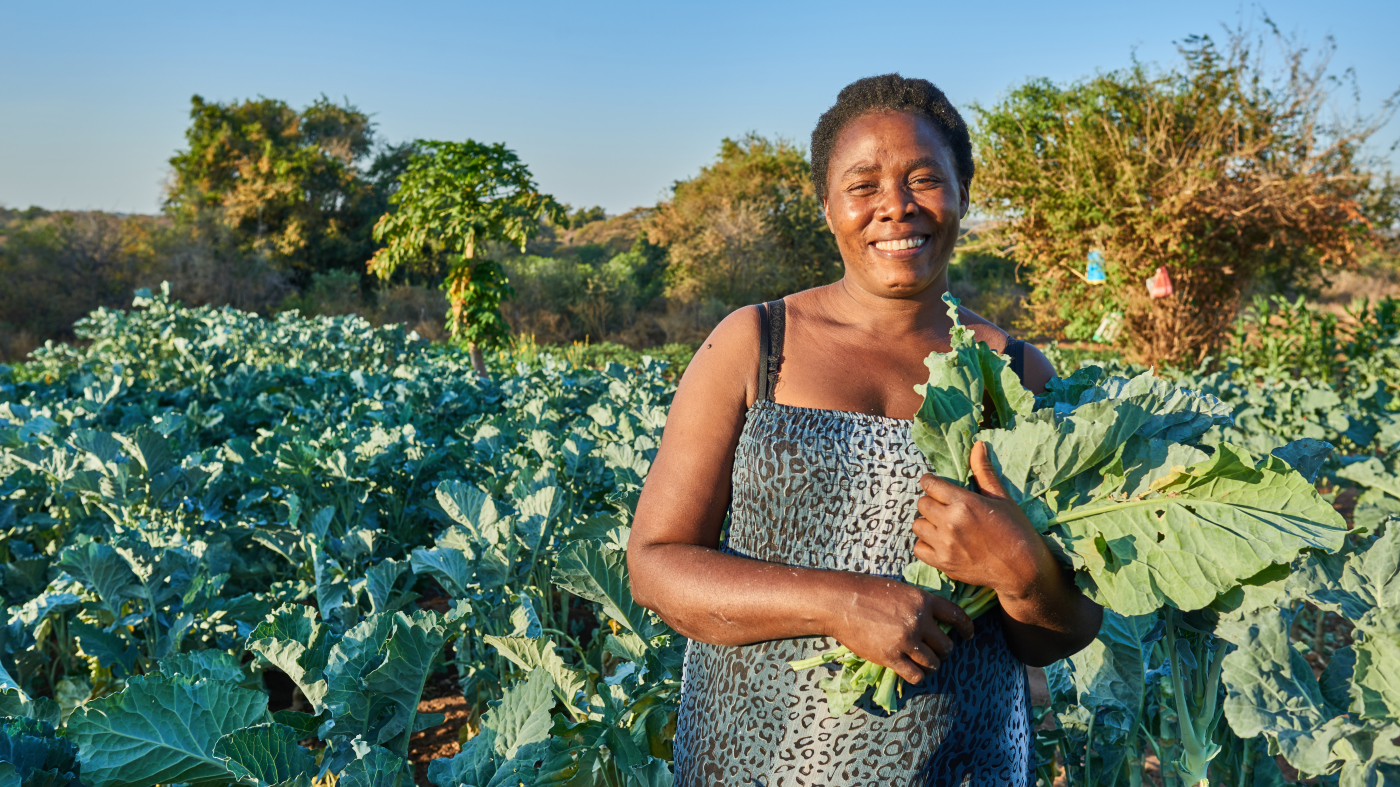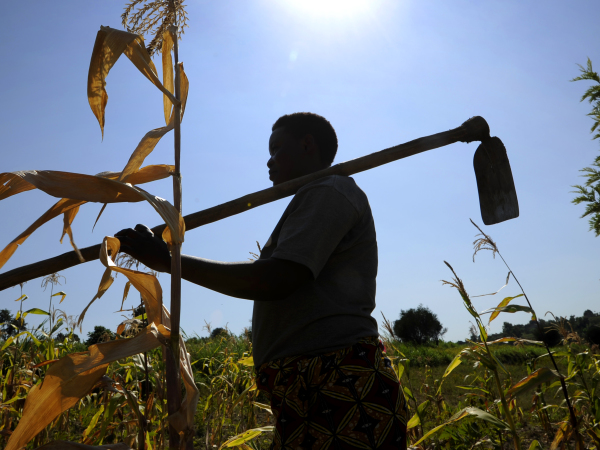Scotland's Circular Economy Bill: A Global Perspective
27 November 2023

SCIAF's Partner Advocacy Officer, Line Kikkenborg Christensen, writes about Scotland's Circular Economy Bill, SCIAF's input to this bill and why we need a global perspective.
In a world driven by rapid consumption and resource depletion, Scotland's Circular Economy Bill is our opportunity for change. At SCIAF we wholeheartedly welcome this, recognising it as a chance to make Scotland's resource use more sustainable. However, for the circular economy to reach its full potential, we need a global perspective, considering the extensive impact of Scotland's consumption on the world.
What is the Circular Economy Bill?
The Scottish Government’s Circular Economy Bill aims to update waste and recycling services, supporting the transition to a low-carbon, green economy. Recognising the importance of sustainable consumption, the bill addresses climate and biodiversity concerns. Material consumption and waste contribute to 80% of Scotland's carbon footprint. The goal is to establish a circular economy, reducing waste, carbon emissions, and environmental impact for the benefit of everyone.
What is SCIAF’s role in the Bill?
The Circular Economy Bill is currently in Stage 1, where parliamentary committees carefully examine the bill and seek public input. SCIAF has been actively involved in this process, submitting evidence in collaboration with our Colombian partner organization, SIEMBRA. This collaborative effort aims to shed light on the pressing global issues tied to Scotland's consumption habits. As a result, SCIAF has been called to provide oral evidence to the committee, and we've taken this opportunity to advocate for speakers from the Global South to directly address the committee.
Scotland's Global Consumption Footprint
We live in an increasingly interconnected and globalised world, where the products we consume have been manufactured around the world, and our waste has a wide-reaching impact. SCIAF's partners in Colombia, The Democratic Republic of the Congo, and Zambia, have firsthand experience of the effects of extraction on their local communities.
In Colombia, multinational corporations control 70% of the mining sector, often without consulting local communities or considering environmental consequences. This disregard for community well-being has led to socio-environmental conflicts and legal actions to protect water sources and environmentally significant areas. SIEMBRA, our partner in Colombia, provides a stark example of the social and environmental repercussions of this global supply chain.
In Zambia, mineral extraction, both large and small scale, dominates the extractive sector. Local communities are often displaced to make way for mining operations, leading to landlessness and the destruction of unique ways of life. Water pollution, a direct consequence of mining activities, poses severe health risks to people in these communities. Caritas Zambia, our partner, exemplifies the harsh reality faced by these communities.
A Global Responsibility
Research by the Scottish Government's agencies indicates that transforming Scotland's energy systems will require millions of tonnes of materials. However, the global impact of extracting these materials is often underestimated. It’s so important that Scotland acknowledges the full scope of human rights abuses, conflicts, labour exploitation, environmental degradation, biodiversity loss, and pollution, caused by extraction for products consumed within its borders.
If Scotland fails to do so, the circular economy may be developed at the expense of the lives and well-being of people in the Global South. Achieving a net-zero and circular economy should not come at the cost of others' livelihoods and environments. It is our moral duty to ensure that the circular economy benefits everyone, addressing the far-reaching consequences of our consumption habits.
The Circular Economy Bill offers a promising path towards sustainability, but it must be rooted in a global perspective. As we move forward, we should always remember the interconnectedness of our world and the impacts of our actions on distant communities. SCIAF remains committed to advocating for a circular economy that embraces the responsibility of global citizenship. Together, we can create a Scotland where sustainability is not just a local goal but a global commitment.

A short analysis from Brian Galligan SJ, a Jesuit in formation, on Pope Francis' Laudate Deum.

The UK Government has published its UK International Development White Paper – it’s first since 2009.
Back to